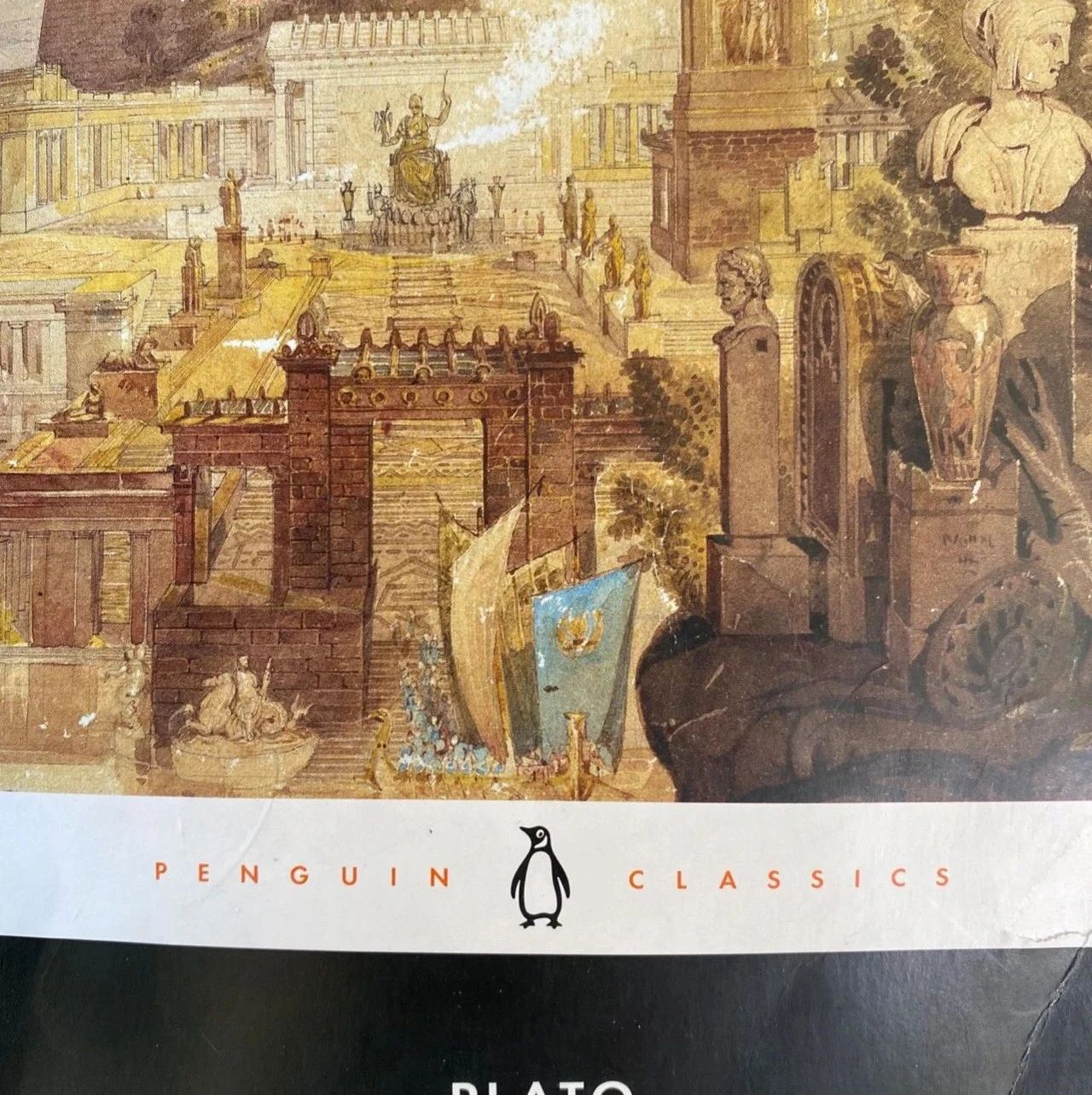The Republic 1 On Justice And The Ideal State 《理想国》1 - 关于正义与理想城邦
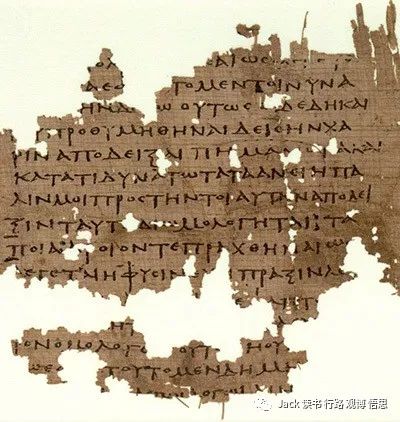
(Fragment of the transcript of The Republic, third century C.E.)
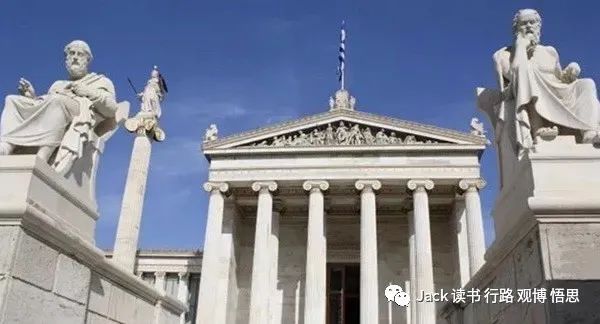
(The sculptures of Socrates and Plato at the gate of the Greek Academy of Sciences in Athens)
In the seminal philosophical piece, The Republic, Plato depicts a perfect state bound by harmony and justice. To achieve his ideal city-state, Plato initiates a profound inquiry, bringing up provocative questions such as “what is goodness?” and “how can an individual or a state be just?” This inquest into the concept of a properly governed community, and the ideal individual to do the governing, remains one of the most important cornerstones of modern-day politics.
Plato began the discussion on what constitutes proper governance by directing the conversation to the topic of “justice”. I think Plato starts the discussion this way primarily because he believes that the ideal state, and individual/societal justice, are intricately linked. The work of constructing a perfect state can only be accomplished if both the individual and the governing body in that state are guided by justice.
Plato initiates the conversation on “justice” by discussing individual justice. But I believe, that eventually Plato will move to the perspective of the state or government in regard to justice. Taking this broad, overarching perspective enables Plato to tie the discussion back to the tenor of the book, which is essentially conceptualizing the perfect, just state. Additionally, through this narrative, Plato would be able to illustrate his political ideal to benefit everyone and every state.
From my point of view, justice in the broadest sense, is the principle that people get what they deserve. However, I think the definition is also more nuanced than that. Individually, justice lies in carrying out your role/responsibility in society. On the state level, justice means giving every individual an equal opportunity to develop and live a full life. On a global level, justice entails mutual and cultural respect of each other’s history, traditions, and values, so long as they adhere to basic “justice” and humanitarian principles. It is extremely hard to reach those standards of “justice”, but those are goals we should set for ourselves as a species.
Overall, what Plato was trying to argue in The Republic is that a good government can only exist if it pays heed to justice. Justice is the cornerstone of an ideal soul and an ideal state.
PICTURES FROM
https://www.uml.edu/fahss/philosophy/
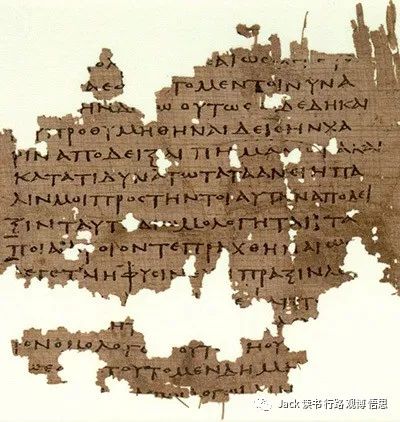
(公园三世纪《理想国》抄本残片)
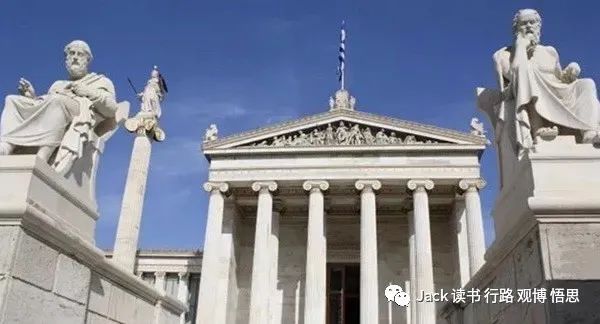
在开创性哲学作品《理想国》中,柏拉图描绘了一个被和谐和正义所引导的完美城邦。为了实现他理想中的城邦,柏拉图发起了一场深刻的探究,提出了 "什么是善?"、"什么是正义?"以及“个人和城邦如何实现正义?”等问题。这种对正义理想社会的概念以及生活在这种社会里的理想个人状态的探讨,仍然是现代政治最重要的基石之一。
柏拉图在讨论什么是城邦的正当治理时,首先将问题引向了 "正义 "这个主题。我认为柏拉图之所以这样开始讨论,主要是因为他认为理想国中的个人/社会正义是错综复杂地联系在一起的。只有当个人和国家的管理机构都遵循正义的法则后,才能构建完美的城邦。
柏拉图通过讨论个人正义来开启关于 "正义 "的对话。但我相信,柏拉图最终会转到国家或政府的角度来讨论正义。通过这种宽泛的、总体性的视角,使柏拉图能够将讨论引回本书的主旨,即如何创建一个完美的、公正的城邦。此外,通过这种叙述,柏拉图将能够表达他的政治理想,使每个人和每个城邦受益。
什么是正义?在《理想国》开篇关于“正义”的讨论中,希腊诗人西蒙尼得关于“正义”的定义,即“正义就是人们得到他们所应得的”成为讨论的起点。然而,在我看来,正义的定义比这种传统观点更复杂、更细致。就个人而言,正义在于履行你在社会中的角色和责任;在国家层面,正义意味着给予每个人平等的发展和生活的机会;在全球层面上,正义意味着文化之间相互尊重对方的历史、传统和价值观,当然这些历史、传统与价值观需遵循基本的 "正义 "和人道主义原则。当然,要达到这些 "正义 "的标准是极其困难的,但这是我们作为具备灵性的物种所必须设定的目标。
总的来说,柏拉图在《理想国》中想要论证的是,一个好的个人、好的政府只有坚守正义,才能真正达到理想的状态。正义是理想灵魂和理想城邦的基石。
- 本文标签: 原创
- 本文链接: http://www.jack-utopia.cn//article/449
- 版权声明: 本文由Jack原创发布,转载请遵循《署名-非商业性使用-相同方式共享 4.0 国际 (CC BY-NC-SA 4.0)》许可协议授权
